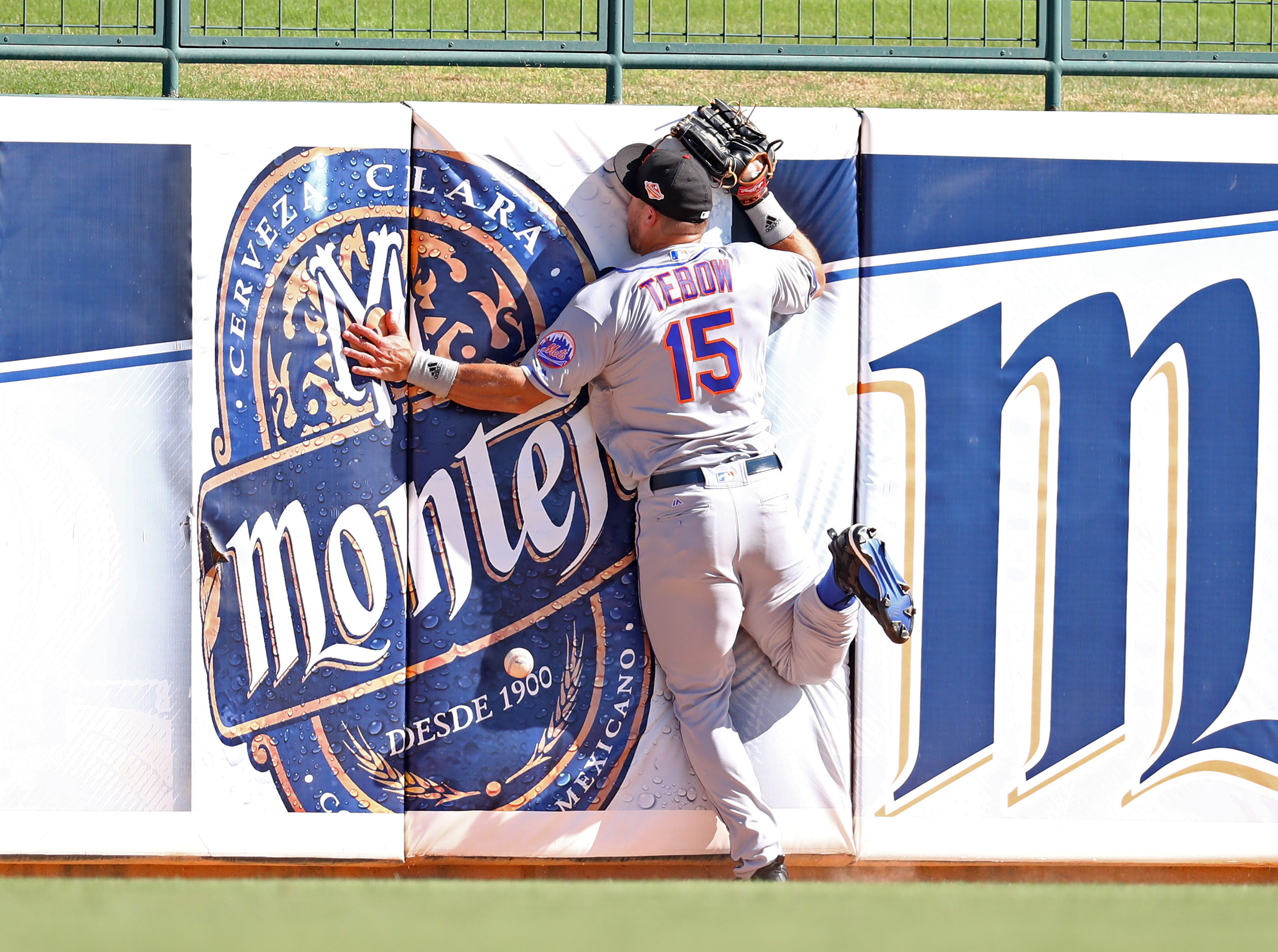Over the course of the past few months, as we’ve discussed the Tim Tebow signing on the BP Mets podcast, For All You Kids Out There, two names frequently came up as players comparable to Tebow that might be adversely affected by his signing: Stefan Sabol and Vicente Lupo. The Mets released both Sabol and Lupo from their minor-league contracts during the first week of October, as part of the normal end-of-year bulk releases. These types of releases are often the end of a player’s career.
It is, of course, impossible to know if Tebow’s signing precipitated the end of Sabol or Lupo’s tenure with the Mets. But both were at least still on the somewhat promising side of organizational players—Lupo was a regular with Low-A Columbia when he was healthy, and Sabol played right field for much of Double-A Binghamton’s season. And yet just a month after the minor-league season, they were unceremoniously dumped in a transaction only noted by Baseball America and the most diehard of fans.
About three years ago, in the 2013-14 offseason, a friend asked me what Mets prospect outside the top 30 or so I thought had the best chance to be a good major-league player. Now, it might seem like going that deep on a team would get you all the good major-leaguers, but I don’t think T.J. Rivera, Hansel Robles, and Seth Lugo were all that close to a top-30 prospect on the 2014 lists. Robert Gsellman would’ve been right on the border. Most orgs at a given time have guys outside the top 30 who will be decent major-league players, perhaps not quite as many or as good as those four, but at least someone. But I had no clairvoyance here, because my answer wasn’t Gsellman, Robles, Rivera, or Lugo. My answer was toolsy outfielder Stefan Sabol, coming off a .203/.298/.345 season at Low-A Savannah.
Admittedly, I’ve always liked Stefan Sabol as a prospect. Part of it was his background, which was way more interesting than your standard middle-rounds junior college player. He was a potential early-round draftee in 2010 as a high school catcher/outfielder, but was viewed as unsignable due to a strong commitment to Oregon. Sabol ultimately didn’t sign as a 17th-round pick of the Braves. As a true freshman, he was Oregon’s starting leftfielder for parts of the season, but battled a broken hand in an up-and-down season. He transferred to a community college for the 2012 season, making him eligible for the draft a year earlier than he otherwise would have been, and the Mets popped him, again as a 17th-rounder. This time he signed for $100,000—the highest you can pay an 11th-rounder or later without chipping into your bonus pool–ironically the same signing bonus Tebow would sign for four years later as an undrafted free agent.
On top of that kind of intriguing baseball background, Sabol has some interesting bloodlines; his cousins include star NFL safety Troy Polamalu and professional wrestler Samoa Joe. As you could imagine, he’s an excellent athlete. In my viewings, he’d often put up impressive shows in batting practice, and would sometimes hit the ball really hard in games too. But the swing went through lots of iterations, and it was never really all that good—just good enough that I would come away from each game thinking that next time, I might see the potential actualized. It never happened.
It ended up taking Sabol two-and-a-half seasons to get out of Low-A, and the batting practice shows didn’t appear in games so much. I still thought there was a shot he’d figure it out, but he just never really did hit to any substantial degree. He hit only .229/.316/.362 in Binghamton in 2016, and at the age of 24, time was running out. The flame might not have been totally out, but an extra outfielder or two in the organization was going to get squeezed because Tim Tebow needs 2017 at-bats somewhere.
It’s highly, highly unlikely that Sabol (or Lupo) was destined to make the major-leagues. But, you never know. As I pointed out on the BP mothership at the time of Tebow’s signing, just last year Phillip Evans could have been this bubble player, and instead he won the Eastern League batting title and reestablished himself as a real prospect. It is unlikely Stefan Sabol would have underwent a similar career turnaround, but ask yourself this: is it less likely than Tim Tebow turning into a major-league ballplayer starting out at 29? The world may never know.
Photo Credit: Mark J. Rebilas-USA TODAY Sports
